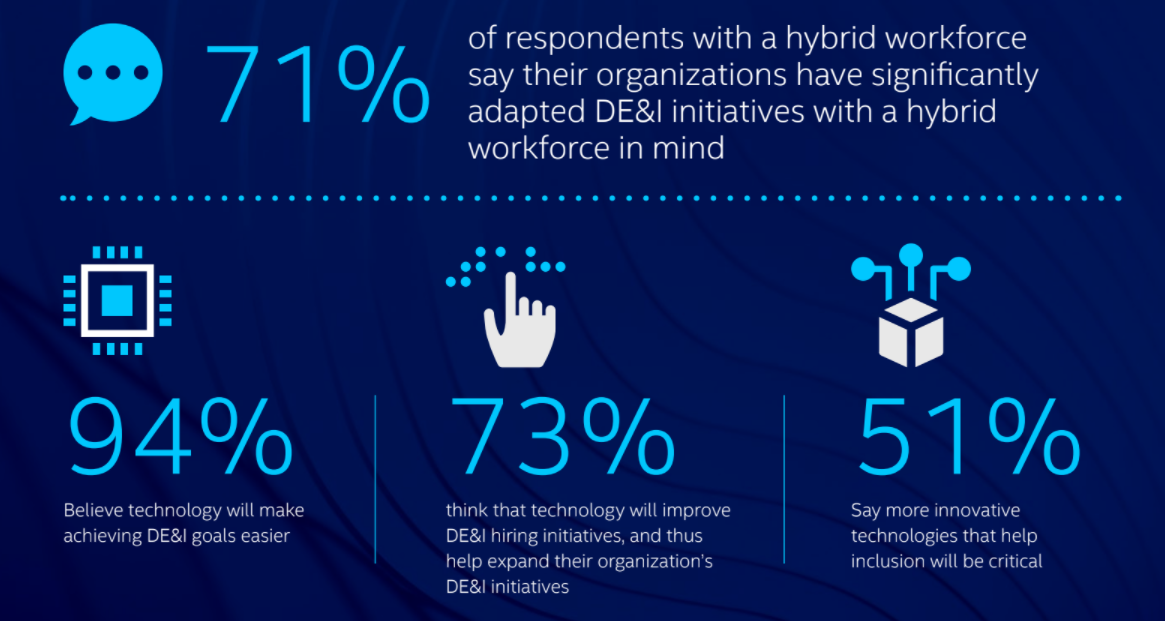Workplace disruptions, hybrid work model create a positive impact on DE&I: Intel

Intel’s recent survey found that the pandemic has been a catalyst for businesses to reimagine the workplace model and adapt to new ways of working, which were historically unimaginable. 81% of the business leaders surveyed in India and globally 63% said that these workplace disruptions caused by the pandemic have had a positive impact on DE&I in their organization, demonstrating how remote workspaces and hybrid work models have been successful for achieving DE&I goals. Furthermore, 71% said their organization has significantly adapted DE&I initiatives for a hybrid workforce.
Tech’s role in supporting Diversity, Equity and Inclusion
Leaders who indicated a positive impact found that remote working and digitalisation made it easier to recruit employees from underrepresented groups (46%) and the pandemic-related acceleration of digital transformation encouraged the adoption of new tools that support inclusivity, connectivity and engagement (45%). Additionally, leaders are making a connection between hybrid work and D&I, with 43% of this group indicating that a hybrid workforce enables companies to adopt a wider variety of D&I-informed practices.
However, while 64% of participants who have set D&I goals say they want to achieve them in the next two years, one-third of those still have doubts that their company is prepared to do so, suggesting that further investment will be required. DE&I still remains a work in progress.

Combining a flexible D&I model with the right technology will help global companies move forward in a hybrid world.
Integrating DE&I into the organisation’s culture
“This survey sheds light on the fact that with the right mindset and a culture that promotes employee wellbeing and technology, we can accelerate the journey toward a more diverse and inclusive workforce,” said Anjali Rao, Senior Director - HR, Intel India.
While technology can help improve the D&I experience, achieving an effective and sustainable program will require a broader industry investment. 51% of the respondents cited an increase in awareness, dialogue and industry-wide change for inclusive language in products and documents as being helpful in meeting organisational D&I goals.
“As organisations plan for the next phase of work — whether remote, in-person, or hybrid — leaders need to continue thinking differently about DE&I,” added Anjali.
The study concludes that major shifts in the ways people work will most likely have unintended consequences on corporate cultures in ways that may put D&I initiatives at risk, but there’s also a great opportunity for change.
















